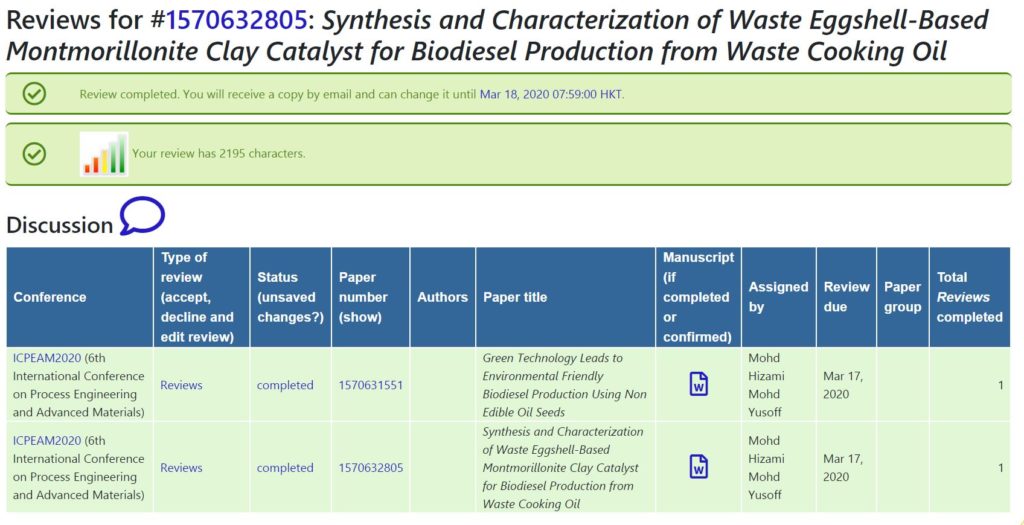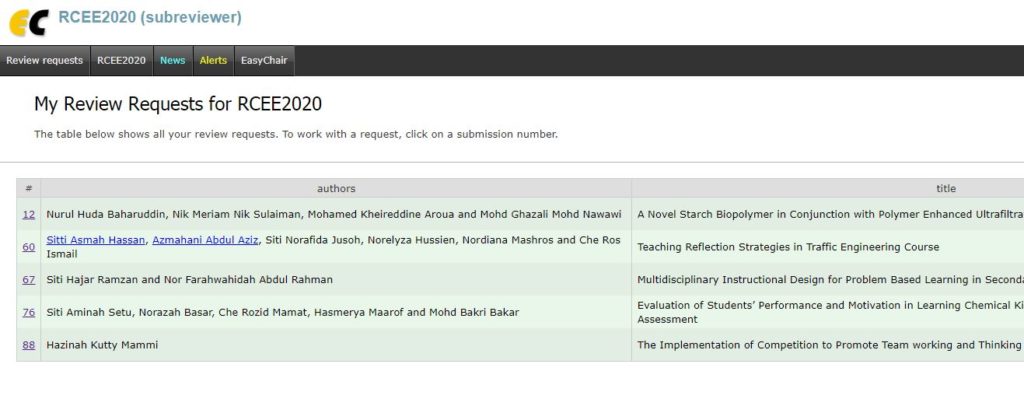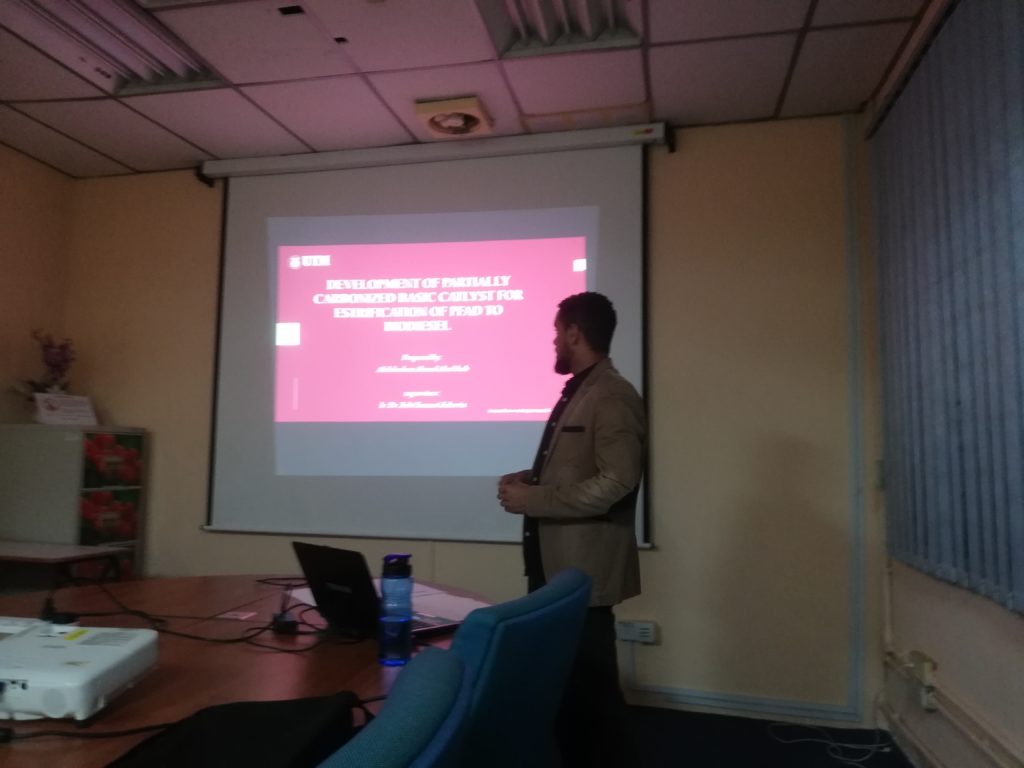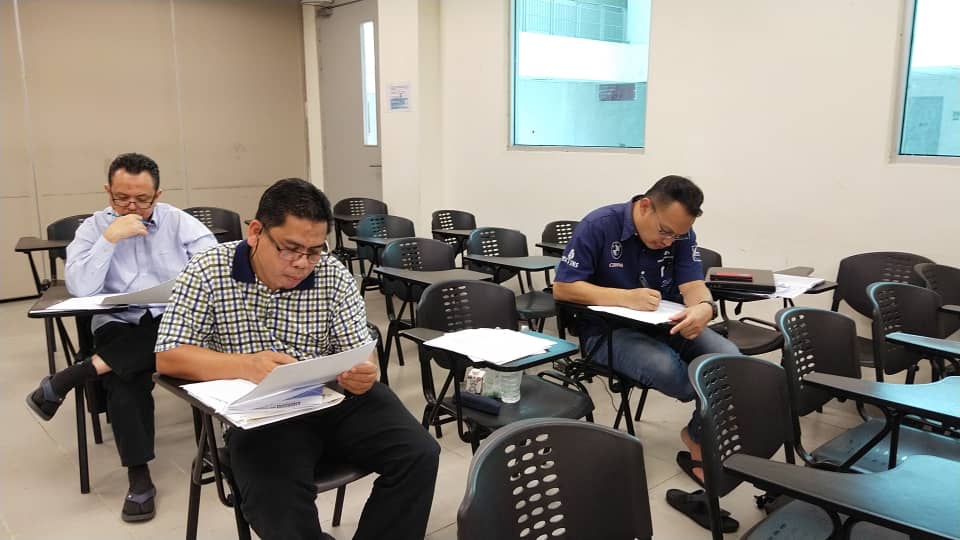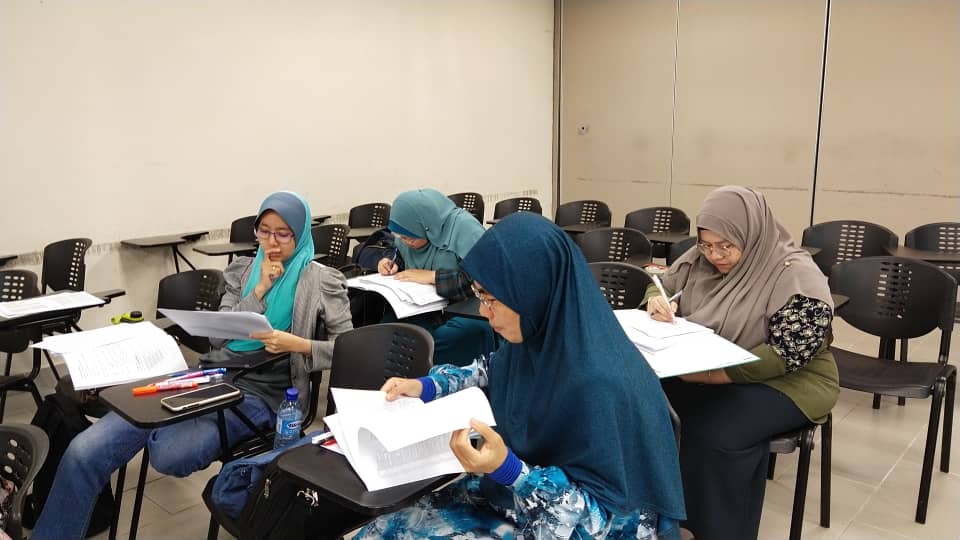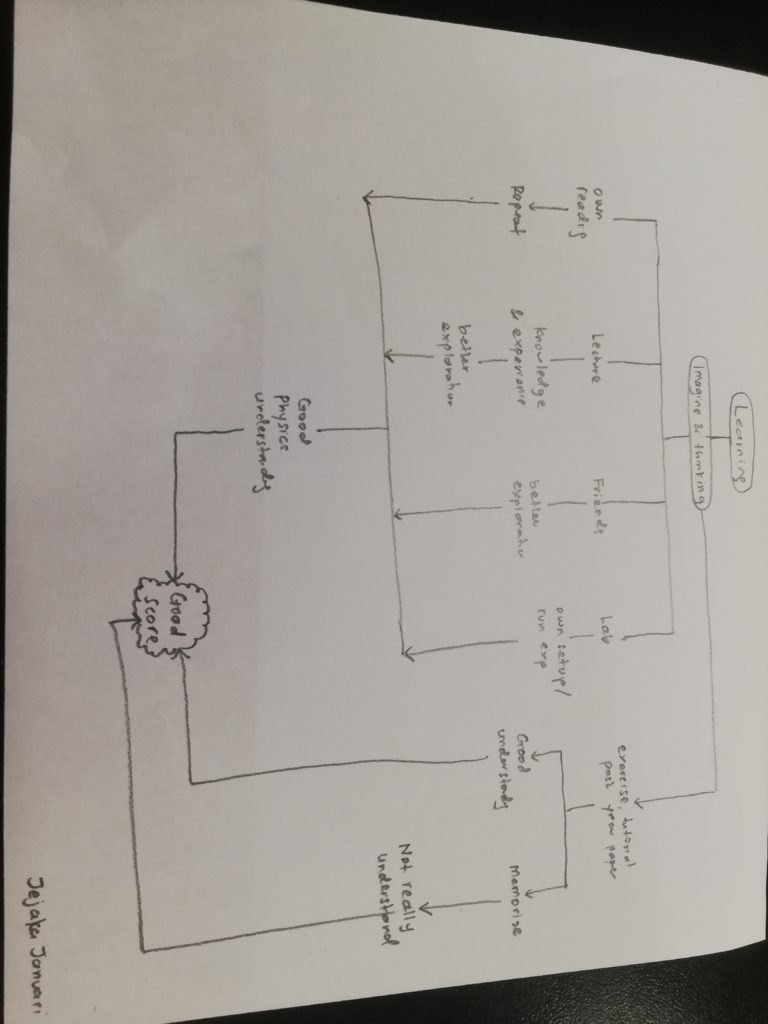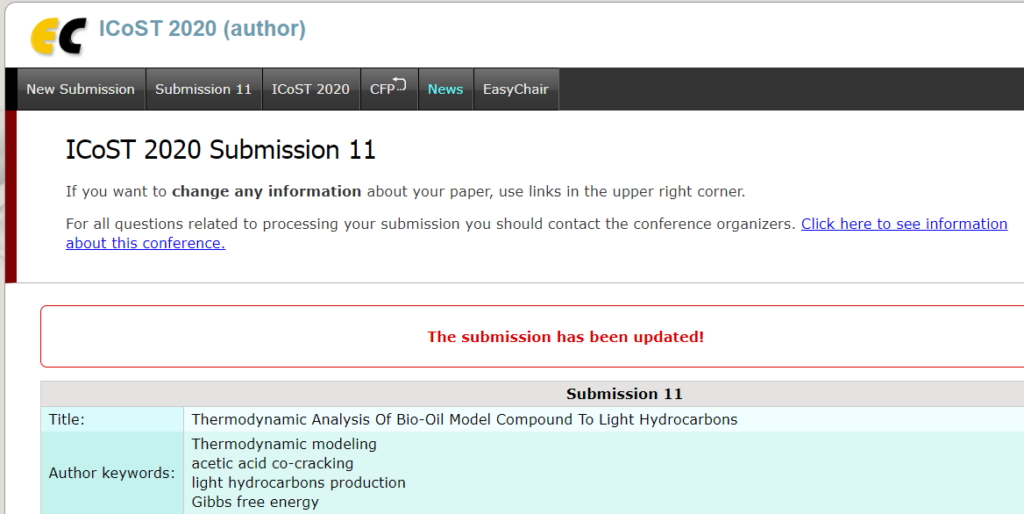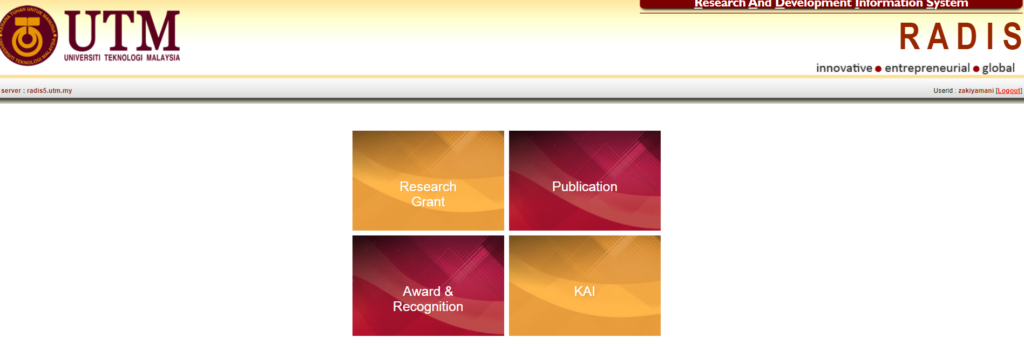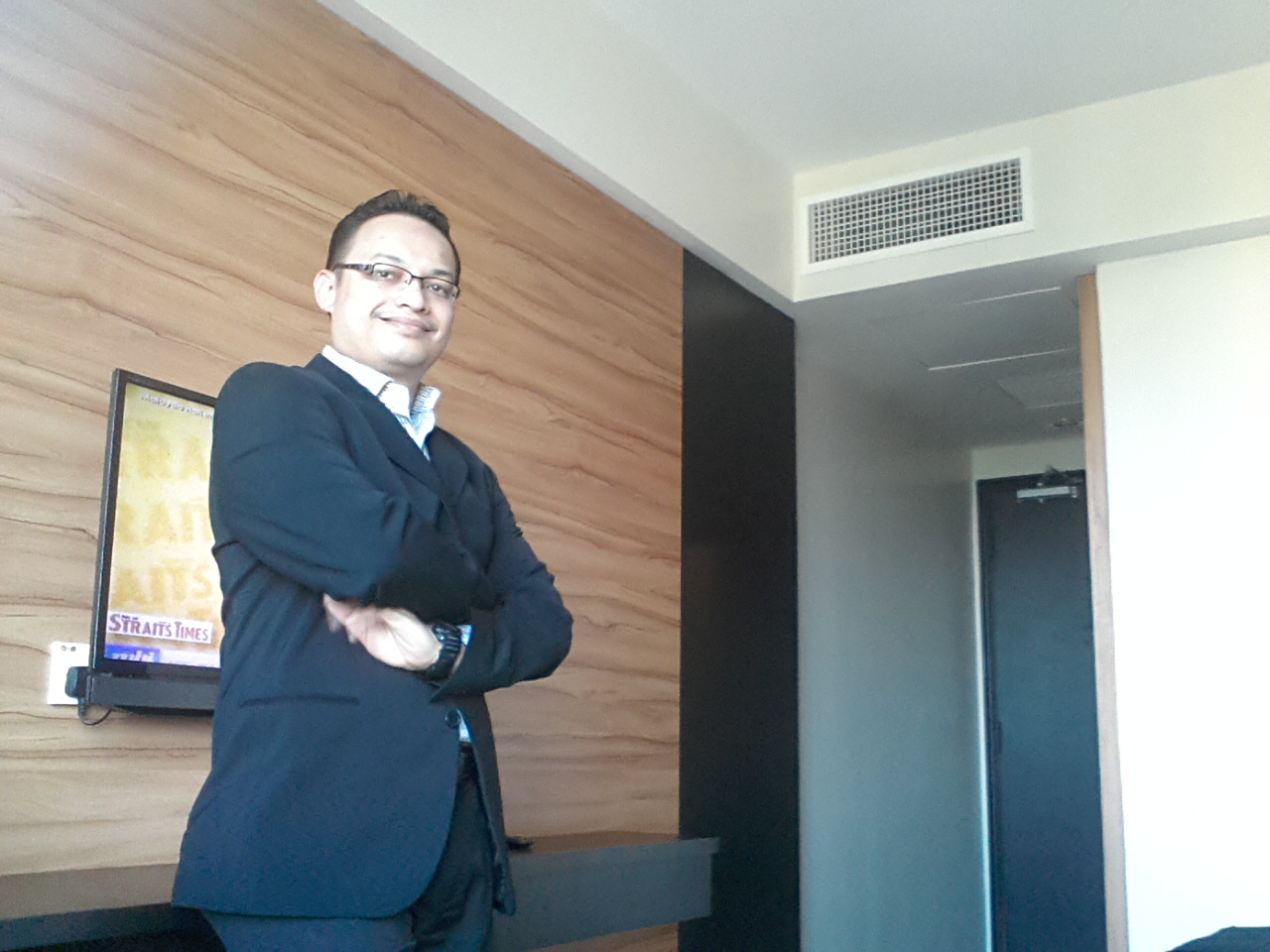Read all my “1 Official Task Per Day Record Challenge for 2020” —> https://people.utm.my/zakiyamani/category/1-activity-1-day/
Day 63 Task – Reviewing Extended Abstract Submitted to RCEE
Today, in the early hours, I reviewed 5 extended abstracts submitted for RCEE2020. Alhamdulillah I managed to review all of the abstracts and provided critical comments for improvements. I am hoping to soon read the improved version of the extended abstract from the authors. InsyaAllah!
Read all my “1 Official Task Per Day Record Challenge for 2020” —> https://people.utm.my/zakiyamani/category/1-activity-1-day/
Day 42 Task – Panel for MKKK Proposal Disertation
I was on of the panel for the proposal defense of one MKKK Master Student, who did a research in the area of Rbdpo predictions based on some kind of statistical analysis. The defense was smooth and I gave some input based on my knowledge and experiences working in the palm oil refinery 13 years ago.
Read all my “1 Official Task Per Day Record Challenge for 2020” —> https://people.utm.my/zakiyamani/category/1-activity-1-day/
Day 39 Task – Reviewing Manuscript for BCREC Journal
 I spent some time to review a manuscript assigned to me by editor from Bulletin of Chemical Reaction and Catalysis (BCREC). The review was my 15th review since I started reviewing manuscript under BCREC few years ago. It is a very interesting and amazing experience since I can read other researcher’s idea in research, especially in the same research niche as myself.
I spent some time to review a manuscript assigned to me by editor from Bulletin of Chemical Reaction and Catalysis (BCREC). The review was my 15th review since I started reviewing manuscript under BCREC few years ago. It is a very interesting and amazing experience since I can read other researcher’s idea in research, especially in the same research niche as myself.
One day, perhaps somewhere this year, I intend to submit a paper in this journal myself. InsyaAllah. And one day, I hope I can be an editor for this journal.
Read all my “1 Official Task Per Day Record Challenge for 2020” —> https://people.utm.my/zakiyamani/category/1-activity-1-day/
First Stage Proposal MKKK of my student
Day 31 Task – Rigourous Research Engineering Education (Part 3)
Today is not a working day but I still have to come for this workshop, which is Part 3 out of a total of 4 workshops for engineering education research. Today we learned about the theories and methods to perform qualitative analysis. It is more complicated to compared to the quantitative analysis which was covered yesterday.
Read all my “1 Official Task Per Day Record Challenge for 2020” —> https://people.utm.my/zakiyamani/category/1-activity-1-day/
Done Submitting Abstract to ICoST2020
Roughly at 11.40pm this night, I managed to submit an abstract to ICoST2020 conference via EasyChair system. This work which was done by JL Lim, my PSM student who diligently work on the thermodynamic modelling. Hopefully this abstract will be accepted for presentation and subsequently accepted for publication in any of the scopus journal under the agreement with this conference.
PhD Mock Viva Session for Shafiqah
Despite attending the engineering education Workshop Part 3, I attended the PhD mock viva for Shafiqah, a student that I co-supervised (She is supervised by Assoc. Prof. Dr. Mazura Jusoh). The event took place at 2.15pm till 5pm. The session was very fruitful and hopefully she can rapidly improve her slides and presentation for next week’s VIVA session.
Day 27 Task – Updating my UTM RADIS System
There has been numerous activities in my UTM RADIS System. I have received new grants, applied for new activity as well as waiting for claim for activities. Today, I am checking out and trying to update my Radis. One grant will be ending this 31st January and I need to prepare a report for that grant. Then, managed the other grants as well. All the best to me 🙂 . One of my grant has been just activated.
Other tasks:
- Updating CAR for my courses.
- Checking and update for MPC project.
Read all my “1 Official Task Per Day Record Challenge for 2020” —> https://people.utm.my/zakiyamani/category/1-activity-1-day/
Expertise Summary – Ir. Ts. Dr. Zaki Yamani Zakaria (for Erasmus Grant)
Expertise Summary – Ir. Ts. Dr. Zaki Yamani Zakaria
Ir. Ts. Dr. Zaki Yamani Zakaria is from the School of Chemical & Energy Engineering, Faculty of Engineering, Universiti Teknologi Malaysia (UTM). His main research interests are in catalytic reaction engineering, engineering education, green related technology, and safety and health. He is presently a fellow researcher in the Center of Engineering Education (CEE), UTM. Previously, he practiced as a Project Engineer (2003-2005) and Process Engineer (2005-2008). Dr. Zaki has published his research works in various reputable journals, international conferences and book chapters. In 2018 he published his own book, “Ramblings of a Chemical Engineer”, which has been well received by fellow chemical engineers from Malaysia and around the globe. Dr. Zaki actively shares chemical engineering related information in his Chemical Engineering Facebook Page (facebook.com/ChemicalEngineeringWorld/) which up till now has 40k followers. His first ever blog, Chemical Engineering World (chem-eng.blogspot.com/), was selected as the Top 10 Chemical Engineering Blogs in the internet in 2019. He and his team recently won Gold Medal in 2019 International Conference and Exposition on Invention by Institution of Higher Learning (Pecipta 2019) in UTHM, Gold Medal in New Academia Learning Innovation (NALI 2019) and Best NALI 2019 Award in UTM for various innovations in student-centred-learning approach.
